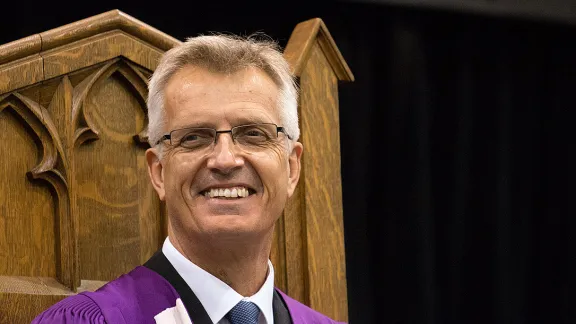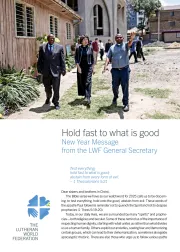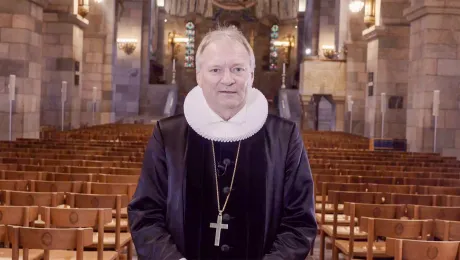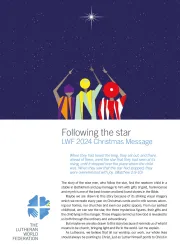
LWF General Secretary Rev. Dr Martin Junge smiles during the afternoon convocation ceremony at Wilfrid Laurier University in Waterloo, Ontario, Canada, during which he received an Honorary Doctor of Divinity degree. Photo: Waterloo Lutheran Seminary
Build bridges between communities, Junge urges Canadian graduates
WATERLOO, Canada /GENEVA, 12 June 2015 (LWI) – Young university graduates should build bridges for the sake of peace, justice and life in today’s world, The Lutheran World Federation (LWF) General Secretary Rev. Martin Junge said in accepting an honorary doctorate in Waterloo, Canada.
Speaking on 12 June at the Wilfrid Laurier University, which conferred on him an Honorary Doctor of Divinity degree, Junge invited young graduates “to always attempt to continue learning in the arts of bridge building.”
He urged them to use their professional skills to “strive to make the connections between your own vocation and your field of expertise, and this most needed ministry of today: the building of bridges. The world needs people like you … to make a difference for the common good.” He emphasized the futility of putting up protection walls between different communities. “They won’t deliver on their intended purpose. They will eventually fall.”
Junge’s convocation address highlighted the LWF’s commitment to put faith into action through care and advocacy for over 2 million refugees and internally displaced persons, with support from partners such as Canadian Lutheran World Relief. He attributed the highest ever recorded number of displaced people since World War II—over 50 million today—to the many protracted conflicts across the world. “Our human rights will depend on the respect for the rights of all people, particularly for those in the most vulnerable situation. There isn’t an ‘us and them’ on this issue, but just an ‘us,’” he added.
The Laurier University recognized Junge for his outstanding contribution to LWF’s work. “I receive this degree as an encouragement to continue upholding the principles, values and commitments which I have attempted to express,” Junge said.
Committed service to the LWF
Congratulating the general secretary, LWF President Bishop Dr Munib A. Younan, noted Junge’s doctorate had been earned through years of service in the Lutheran communion.
The first Latin American general secretary of the LWF, Junge assumed LWF’s chief executive position in 2010 after a decade as area secretary for Latin America and the Caribbean.
“Under your leadership, the LWF has deepened and expanded its commitment to neighbors throughout the world. Your commitment to holistic mission, including prophetic diakonia, has been reflected throughout the communion,” Younan said.
On 11 June, Junge delivered a public lecture on “Global citizenship: the role of faith communities in the public space,” at the Waterloo Lutheran Seminary, an affiliate college of Laurier. The ceremony was attended by hundreds of guests including students, faculty members and other officials, among them, the Evangelical Lutheran Church in Canada National Bishop Susan C. Johnson, who is LWF Vice-President for the North American region.
Faith should not be a stumbling block
Junge urged faith communities to persist in claiming their role as “a source of healing” when religion is being manipulated and hijacked to support violence.
“Faith is not meant to be a stumbling block among people and communities seeking to live in dignity, justice and peace, but a building block, a resource enabling people and communities to reach that goal,” he emphasized.
The former president of the Evangelical Lutheran Church in Chile asked, “If God showed compassion to humanity through the life of Jesus Christ, how can churches stay out of the public space?”
He argued that Luther’s message around justification by faith alone, when associated with loving care for those suffering spiritually and materially, helped make his message more relevant.
Junge commended Canadian society for promoting multiculturalism. “I recognize a feature here that I have seen replicated in many churches and faith communities around the world: their ability to position themselves in the public space goes hand in hand with their loving engagement with the world and the people,” he noted.
“Faith communities are called today into the public space as bridge builders, as both local and global actors, and as strong advocates for peace and justice,” Junge concluded.


